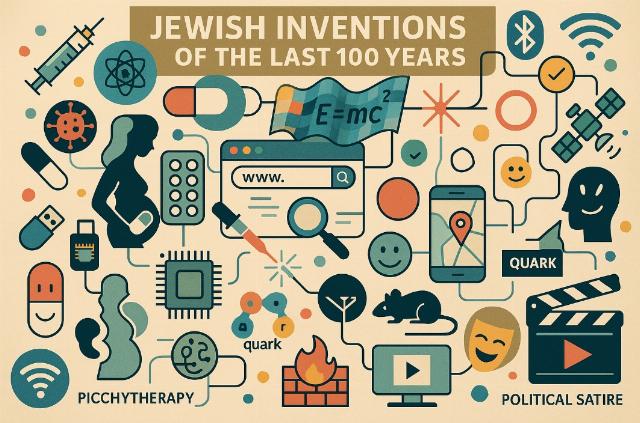Of respect, I will not bore the American Thinker readership with much about the paroxysms of jihad called the Intifada that arose amongst Gazans and those in the West Bank. Suffice it to say it is the acting out of one of the most illiterate groups on the planet, whose highly inbred and whose blood-thirsty cultists act in support of a make-believe country, and whose greatest contributions are the popularizing of airplane hijackings, suicide bombings, stringing up gays or challenging them to fly, and an explosive fashion sense, especially for kids.
Small wonder that the students and grads of our elite schools of higher “education” are supporters and want to globalize it.
I propose a different globalization: Globalize Chanukkah.

Image created by ChatGPT.
Chanukkah commemorates the Maccabean Revolt against the Seleucid Empire in the 2nd century BCE. The Seleucid king Antiochus IV Epiphanes attempted to suppress Jewish religious practices, desecrating the Second Temple in Jerusalem and enforcing Hellenistic customs. A Jewish resistance, led by Judah Maccabee, fought back, ultimately reclaiming the temple. The victory allowed the Jews to rededicate the temple, restoring their religious autonomy. The holiday marks this military triumph and the survival of Jewish identity under foreign rule, something celebrated in song:
“Mi Y’malel” (or “Mi Yimalel“) (Hebrew: מיימלל “Who can retell?”) is a very well known traditional Hebrew Hanukkah song. The opening line, which literally means “Who can retell the mighty feats of Israel,” is a secular rewording of Psalm 106:2, which reads “Who can retell the mighty feats of God.”
The key words, literally translated, mean,
Who can tell of the heroic deeds of Israel?
Who can count them?
Yes in every generation a hero arises
To save the people.
Since 1948, the year of the re-establishment of the State of Israel—the homeland of the Jewish people for nearly four millennia—the world has been the beneficiaries of the heroes of tiny Israel, time and again, saving the planet’s inhabitants:
On June 7, 1981, Israeli Air Force jets bombed and destroyed the Osirak nuclear reactor near Baghdad, Iraq. The reactor, built with French assistance, was intended to produce nuclear weapons. The strike delayed Iraq’s nuclear ambitions, as the reactor was rendered inoperable. Some, including former U.S. Defense Secretary Dick Cheney, later credited the operation with simplifying the 1991 Gulf War by ensuring Iraq did not possess nuclear weapons. By preventing a potentially nuclear-armed Iraq under Saddam Hussein, Israel’s action is seen by some as reducing the risk of nuclear conflict in the volatile Middle East, especially given Iraq’s later aggression in the Iran-Iraq War and Gulf War.
On September 6, 2007, Israeli warplanes destroyed a nuclear reactor in Syria’s Deir ez-Zor. The facility, built with North Korean assistance, was believed to be a plutonium-producing reactor. The strike effectively ended Syria’s nuclear ambitions. By preventing a nuclear-armed Syria, especially under Bashar al-Assad’s regime, which later faced civil war and instability, the operation is credited with reducing the risk of nuclear weapons falling into hostile or unstable hands, particularly given Syria’s ties to Iran and Hezbollah.
Israel has engaged in covert and overt actions to curb Iran’s nuclear program, seen as a threat due to Iran’s anti-Israel, anti-USA, and anti-Western rhetoric and regional ambitions. Notable actions include:
This is not all that Israel has done to help keep/make the world a safer place.
Israel has directly shared intelligence with the United States (see here, here, here, here), United Kingdom (see here, here), France (see here, here), Germany (see here), Switzerland (see here), India (see here, here), Five Eyes (of which Israel is not a member), Russia, and indirectly shared it with other Western nations through networks like Kilowatt, as well as with regional partners like Jordan and Egypt. These efforts have prevented terrorist attacks, disrupted weapons proliferation, and protected critical infrastructure, saving countless lives and assets.
Beyond military actions, Israel has made technological and humanitarian contributions that improve global safety and quality of life, including, but, as above, absolutely not limited to:
These contributions enhance global resilience against cyber threats, environmental challenges, and health crises, indirectly fostering stability. Israel’s innovations contribute to a more secure and sustainable world.
Since its establishment in 1948, Israel has made significant contributions to science, technology, literature, and the arts, and has been recognized with numerous awards, including Nobel Prizes. Space constraints prevent me from listing the hundreds of these awards.
Here is a short comparison of what the People of Chanukkah have contributed compared to others, including the Intafidiots:
I included Spain, Ireland, and Norway because they have chosen to recognize the hallucination known as Palestine as a real state.
And now, it is plucky Israel that, on June 13, 2025, began Operation Rising Lion to, again, free the world from a nuclear threat and make the world a safer, better place.
After all is said and done, and ignoring the contribution to Western Civilization of the Jews (and Christianity, a derivative of Judaism), the State of Israel in this age is the hero that has arisen to save the people of the world.
It is time to globalize Chanukkah and show appreciation for the heroes that make the world better: The men and women of Israel.
Source link

